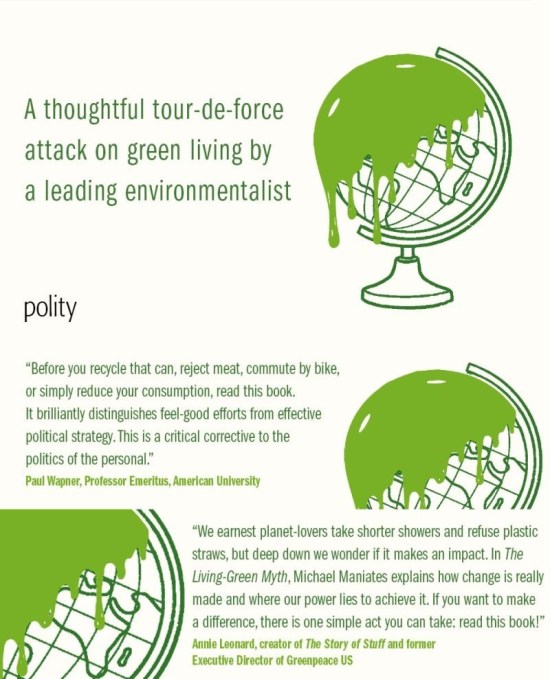
Michael Maniates is a scholar of sustainable consumption and environmental politics, with expertise in the design, implementation and evaluation of interdisciplinary undergraduate programs in environmental studies and sustainability. He consults, writes, workshops, and lectures on innovative environmental education, post-growth sustainability, green living and citizen activation, and the theory and practice of social change.
- a short profile (February 2026)
- CV (March 2026)
- a few thoughts on teaching (January 2018)
- Google Scholar Profile
~ ~ ~ ~ ~ ~ ~ ~
February 2026: My new book is out. Amazon.com provides a sample here.

~ ~ ~ ~ ~ ~ ~ ~
For almost five decades, since my days as a graduate student at the Energy and Resources Group, I’ve worked with others to puzzle out how we get to a future that works — a future that is environmentally sustainable, socially just, dynamic and innovative, and just plain beautiful. Given my affinity for undergraduate education, my primary professional locales have been small liberal-arts colleges: Allegheny College and Oberlin College in the United States and, until June 2025, Yale-NUS College in Singapore.
Like all walks in the woods, it’s been a crooked path. I’ve worked as an energy consultant for Pacific Gas and Electric Company in San Francisco, a research associate with the energy office of the City and County of San Francisco, and a program associate and staff writer with The International Project for Soft Energy Paths, an early Amory Lovins project in association with Friends of the Earth.
Later, my Fulbright-scholar PhD research took me to rural India — and my work, which explored the social impacts of village-scale renewable energy systems, won praise from the World Resources Institute. I co-founded two award-winning environmental organizations, served as Academic Dean on a floating college, and have been honored for my teaching and scholarship. I also helped run the world’s largest (by volume) frozen yogurt shop at the time, in Berkeley, California. I can still fill cones with the best of them.
Over the years I’ve enjoyed opportunities to experiment with educational designs for environmental sustainability and social change. My first job out of graduate school saw me launching an environmental studies program within the department of Geography at Radford University. The program became a blazing success — too successful, in fact, going from zero to 80+ students in just three years with declining resources.
Happily, I was invited to join Allegheny College, a nationally ranked liberal-arts college, to fill a newly created joint-appointment in political science and environmental science. Twenty years later, after a wonderful run at Allegheny (props to all my colleagues there) and multiple teaching stints with Semester at Sea, I joined Oberlin College’s program in environmental studies for two years to assist with curricular redesign. Yale-NUS College was forming around this time; a friend suggested that I apply to lead the new environmental studies program, and serendipity happened. Sadly, the Singaporean government closed the college in June 2025 with no clear explanation as to why, putting an end to a global experiment in the liberal arts and an exemplar undergraduate program in environmental studies.
But life goes on. My latest book The Living-Green Myth: The Promise and Limits of Lifestyle Environmentalism was released in November 2025. I’ve recently joined the Story of Stuff in Berkeley, California as a Senior Fellow. I continue to participate in the environmental studies section of the International Studies Association and maintain the primary listserv for scholars, teachers, and practitioners of global environmental politics, which I launched in 1994. And I’m in the early-drafting stage of my next book Stop Wasting Time: Four Paths to Deep Sustainability in Higher Education.
For my wife, Rebecca (the social science/business librarian at NYU Abu Dhabi) and our son, Elliot, Singapore was a wonderful home for close to a decade. We are finding Abu Dhabi to be equally delightful, and are thankful for the hospitality of the UAE.
Last Update: 23 February 2026
Unless otherwise noted, all images are from my personal collection or licensed by Shutterstock, Pixabay, or Creative Commons
